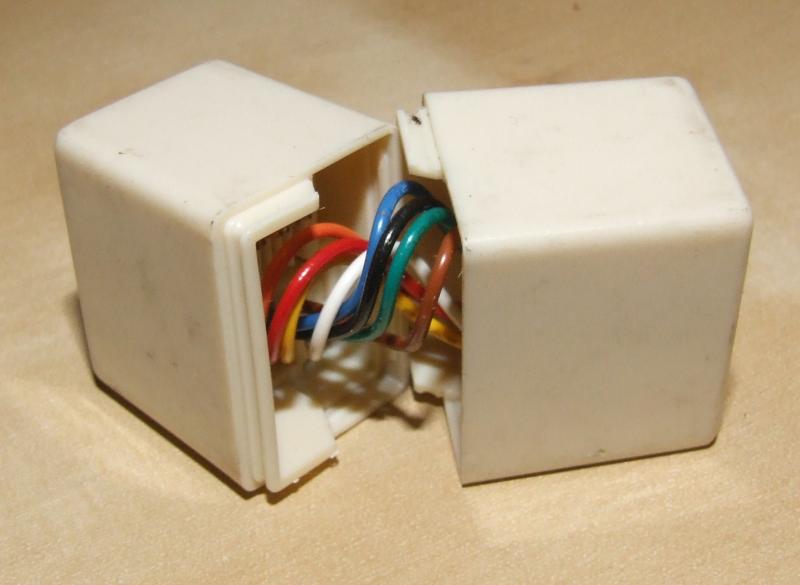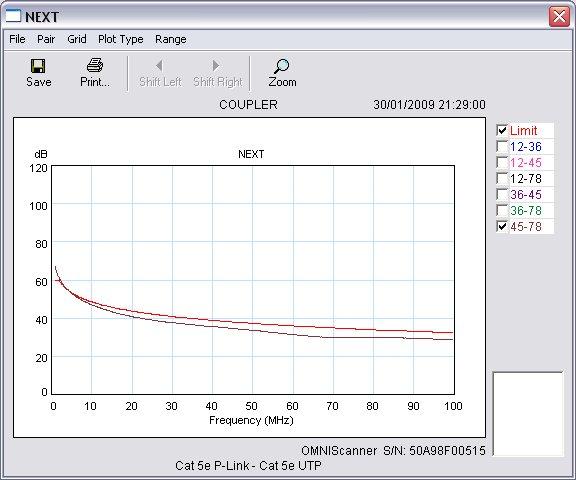I've always thought that use of these was bad practice, but have never really had any proof.
Was called out today to investigate why a customers backup job was running so slowly to their brand spanking new Windows Storage server.
The server was cabled into the network on a CAT5e link into a 1Gbps switch port.
I checked all of the obvious things, network card drivers speed / duplex mismatch and came up with nothing, so I put the cable certifier on and low and behold it failed the crosstalk test (NEXT) On testing the link speed it was averaging at around 17Mbps
After a bit of investigation (digging around in a rockwool filled suspended ceiling ) I came across this;
) I came across this;
Replaced the thing with a proper IDC junction box and link speeds are now at 987Kbps which pretty bang on considering overheads.
To satisfy curiosity i've tested the coupler in isolation, it still fails the test badly and on cracking the casing open I can see why.
Maximum permitted limit for untwisting pairs is 13mm, as you can see the image above clearly shows that the couplers do not uphold this standard.
This is a plot of the NEXT test, red line is the limit
Moral of the story is don't use RJ-45 couplers!
I've just bought a few different types from eBay to test if this was a particulary bad one.
P.S. I'll be going back to rerun the whole cable rather than leaving the IDC JB bodge.
Was called out today to investigate why a customers backup job was running so slowly to their brand spanking new Windows Storage server.
The server was cabled into the network on a CAT5e link into a 1Gbps switch port.
I checked all of the obvious things, network card drivers speed / duplex mismatch and came up with nothing, so I put the cable certifier on and low and behold it failed the crosstalk test (NEXT) On testing the link speed it was averaging at around 17Mbps
After a bit of investigation (digging around in a rockwool filled suspended ceiling
Replaced the thing with a proper IDC junction box and link speeds are now at 987Kbps which pretty bang on considering overheads.
To satisfy curiosity i've tested the coupler in isolation, it still fails the test badly and on cracking the casing open I can see why.
Maximum permitted limit for untwisting pairs is 13mm, as you can see the image above clearly shows that the couplers do not uphold this standard.
This is a plot of the NEXT test, red line is the limit
Moral of the story is don't use RJ-45 couplers!
I've just bought a few different types from eBay to test if this was a particulary bad one.
P.S. I'll be going back to rerun the whole cable rather than leaving the IDC JB bodge.




